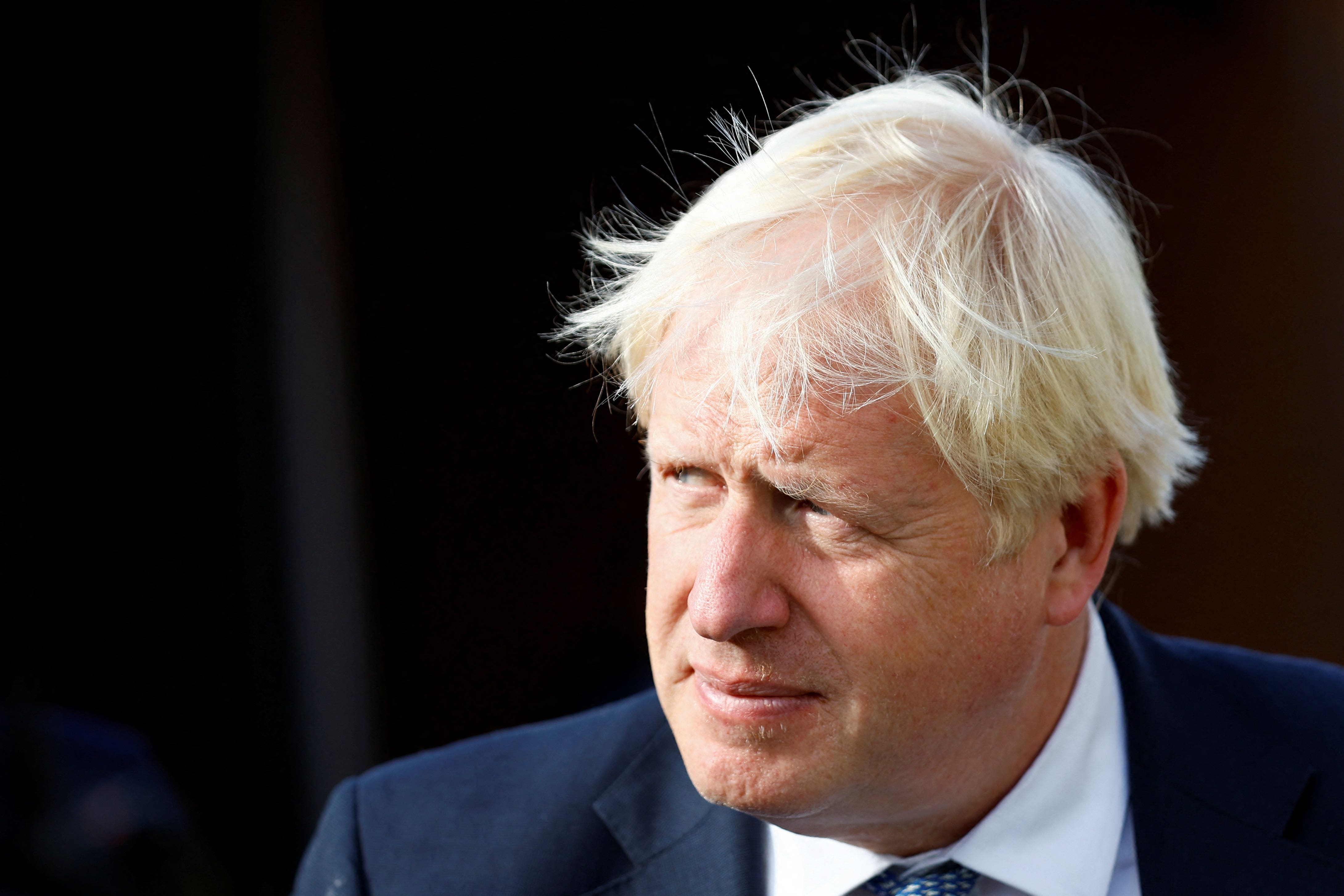Boris Johnson thinks long Covid is ‘b******s’? He should try dragging himself a mile in my shoes
I was a ‘do-er’, but Covid took my identity from me completely, writes Louise Dunne. I spent days in bed, was asleep by 8pm and my social life ground to a halt. Three years after catching the virus, I still have recurring symptoms. Here’s what it’s really like to suffer long Covid, Boris...


So, Boris Johnson thinks that long Covid is b******s, does he? A lot of people do – I’ve experienced that stigma, first-hand. But dismissive attitudes – the former prime minister’s, or people in my everyday life – don’t make any difference to the fact that three years after contracting Coronavirus in the first wave of the pandemic, I am still suffering. Walk a mile in my (slow, painful, aching) shoes before you say long Covid isn’t real.
I picked up the virus in October 2020, at the end of the first lockdown and the first wave of infections. It was at a time when the NHS had only just started to roll out testing and when hospital numbers were incredibly high. For the first week or so, it felt like a normal cold – it was also the time when we were told that if you were sneezing (I was) and didn’t have a temperature (I didn’t) that it was highly unlikely to be Covid and “just” a cold.
For the next few days, my sense of taste and smell started to deteriorate – and at around 10 days when I thought I was starting to improve, I was suddenly hit by a huge wave of tiredness and developed a fever. I don’t remember very much of the next few days at all, except for feeling scared. My symptoms would change by the hour, my heart rate was more than 140 beats per minute – even when sitting down – and I barely had enough energy to walk from the sofa to the kitchen. I live by myself, and no one was allowed to visit.
One night in particular, I really struggled to breathe – but it was also at a time when people were going into hospital and (too often) not coming out, so I took the decision to stay at home and try and fight it the best I could. Over the next few days, I started to improve. At around the three week mark, I thought I was over it – my taste and smell were back, and I’d started to feel more like myself again.
How wrong I was.
I should add that I have always been fit and healthy and have never had any health problems. I always exercised a lot and have always eaten well too, so I thought I would easily bounce back. About a week after I thought I was better, I went for a short walk – only a couple of miles and something that was easily within my ability – and that was fine.
But I woke up the following morning feeling exhausted... so exhausted that I had to spend the whole day in bed. It felt like a very severe hangover. Over the next few days, I started to feel better and the following weekend I tried going for a walk again. This time, I spent three days in bed as a result – and that’s when my other symptoms started to appear. And they never left.
For the first nine months, I had a burning sensation in my mouth and down my throat which felt like I had eaten a chilli pepper... all the time. It was painful to eat. I also couldn’t get through the day without needing to sleep for a couple for hours.
I developed brain fog, where I sometimes lost my short-term memory. I would completely forget where I was or why I was going somewhere. I would make lists and have no recollection of writing anything down when I picked them up again.
My heart would often race, my resting heart rate shot up to around 85 (it’s usually around 60) and I had pins and needles and numbness sporadically throughout my body. But the fatigue was the worst – some days I couldn’t even stand to get out of bed. I would have to hold on to walls to walk to the bathroom.
I had this cycle roughly every 10 days. As soon as I recovered – and tried to do anything resembling normality – I would have a relapse and have to spend several days in bed. I would be asleep by 8pm, my social life stopped and my life completely changed.
As someone who was a “do-er”, I totally lost my identity. At about 18 months in, I started a rehabilitation programme, which was the first step to recovering. I saw a consultant at the local hospital and although all of my tests on my heart and lungs were “normal”, she said that the strain had likely caused some level of neurological damage which I would recover from – but it would take time.
As I received very limited support from the NHS, I started to work with other health practitioners privately. I paid for blood tests and took advice on how to optimise my health. I also paid for oxygen therapy, red light therapy, many supplements relating to my personal deficiencies and spent thousands of hours researching myself and working with people to try and get my life back.
Three years in, I can finally lead a relatively normal life – albeit with restricted levels of exercise. I still have to prioritise rest, recovery, and sleep; ensure stress is at a minimum and be very careful about how I treat my body – otherwise I will experience flare ups and (reduced) versions of my symptoms reappear.
Despite this life-changing experience, I do still feel lucky. I am good at researching and understanding data, to give myself the best chance of recovery, and I can still work – with amendments. I now exclusively work from home. But, I am in a position where I can afford to pay for additional support to try to improve my health. In some ways, I’m very fortunate. Many people lost loved ones in the first round of the pandemic. I am lucky to still be here at all.
But Covid still took three years of my life from me. As the latest revelations from the Covid Inquiry have shown: it is devastating to think how many people are suffering – and will continue to suffer – due to a lack of funding and support... all because of one man’s failures, and his arrogant view: that this is all b******s.





